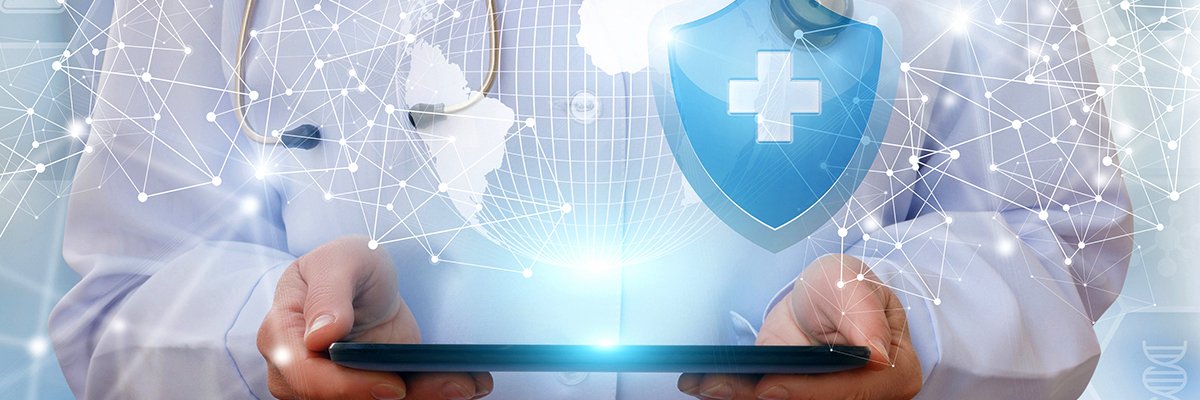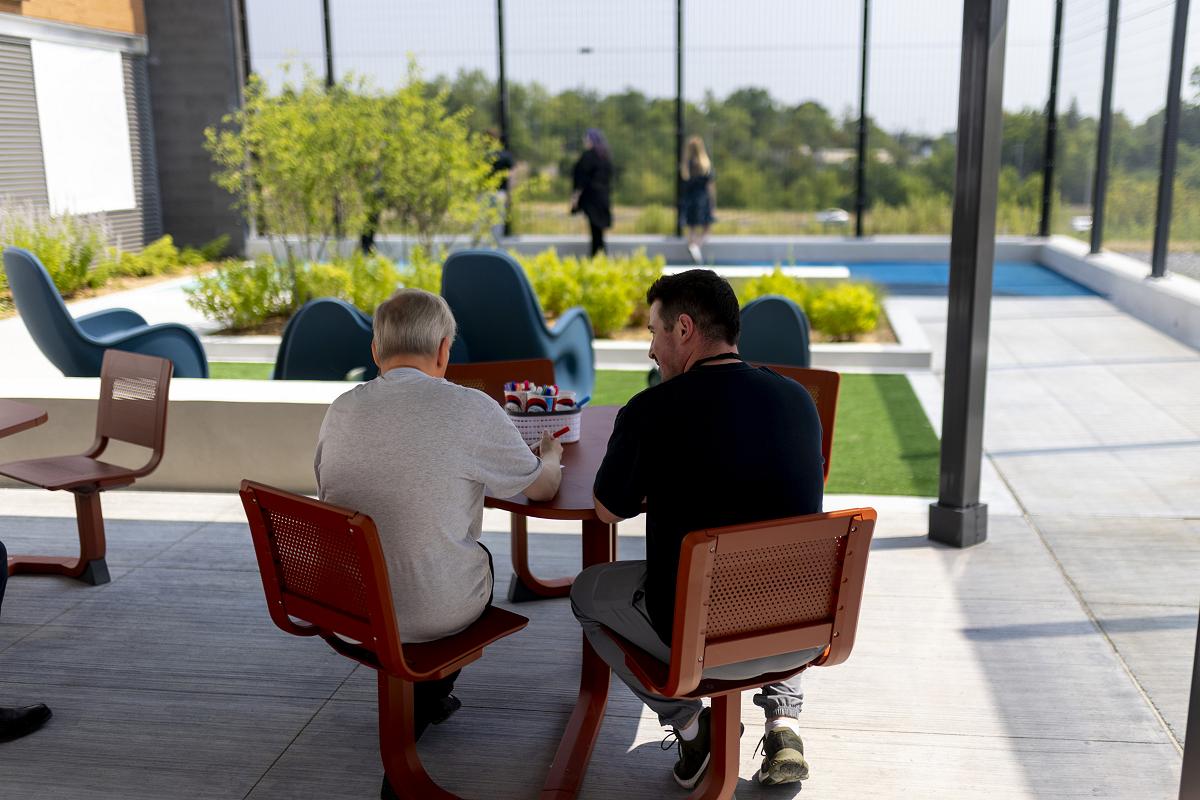
In recent years, the healthcare sector has undergone significant shifts in both local and global contexts. These shifts are primarily attributed to demographic, technological, economic, and political factors. These changes have had a profound impact on the healthcare ecosystem, requiring organizations to adapt their operations and strategies to this evolving landscape [1, 2]. In response, healthcare organizations have had to modify their behavior to adapt to this ever-changing reality [3]. Among the factors that have most significantly affected the healthcare system are technological advancements, automation, and the rise of digital and virtual environments. The impact of these factors gained momentum in December 2019, primarily due to the COVID-19 pandemic. Technological advances, particularly the rise of artificial intelligence (AI) and digital tools, have been central to this transformation, with the COVID-19 pandemic accelerating the need for healthcare systems to adapt and innovate [3,4,5,6,7,8]. The integration of AI in healthcare, including the deployment of chatbots like ChatGPT that utilize the Generative Pre-trained Transformer (GPT)—a type of large language model (LLM)—underscores a shift toward digital and AI literacy in medical education and practice. [9, 10].
The adoption of AI in healthcare, highlighted by the use of systems like ChatGPT, marks a pivotal shift towards greater digital and AI literacy in medical education and practice [9,10,11,12]. This reflects the healthcare sector’s broader move towards technological innovation, aiming to enhance patient care and revolutionize healthcare professional training. Incorporating AI, such as ChatGPT, into educational frameworks prepares students for the complexities of modern healthcare, demonstrating AI’s potential to transform both healthcare delivery and professional skill development [11, 12].
In the rapidly evolving landscape of AI, where technological developments are occurring at an accelerated pace, there is a significant need for comprehensive research to navigate this ever-changing landscape. In particular, research into the impact of AI on healthcare is still limited, highlighting the urgent need for more focused studies on the implications for medical education and the effective training of healthcare professionals in the use of AI technologies [13, 14]. The emergence of LLMs, such as GPT, and their applications in educational frameworks, including chatbots like ChatGPT, has increased the urgency of reassessing the skills required, with a particular focus on digital literacy. This reassessment is essential to determine the continued relevance of these skills or whether a fundamental refocusing is required. Such a re-examination is essential to ensure that the healthcare workforce is adequately prepared for the challenges and opportunities presented by the integration of AI into healthcare practice [11].
Studies [15,16,17,18] have identified a significant gap in understanding how digital literacy skills—such as accessing, analyzing, evaluating, and creating digital content—play a role in effectively leveraging LLMs like GPT and their applications, including chatbots such as ChatGPT, within educational frameworks. Furthermore, the successful integration of ChatGPT into educational settings may potentially lessen the reliance on traditional digital literacy skills, prompting a reevaluation of their ongoing relevance [19, 20]. This gap underscores the need for more research into the critical role that digital literacy skills hold in the efficient use of technologies like ChatGPT for educational aims, as highlighted by recent literature [15, 17, 18]. ChatGPT’s access to accurate medical information could reduce the need for individual data analysis skills [21, 22]. Yet, concerns persist among researchers that its content generation might hinder critical thinking development, including source evaluation and idea generation [23, 24].
This qualitative study introduces a pedagogical framework that synergizes problem-based learning with the application of ChatGPT among undergraduate healthcare management students. It aims to qualitatively examine their interactions with this technology, focusing on the transition from traditional digital literacy towards a more advanced AI literacy. This evolution in educational focus is poised to revolutionize the requisite competencies for navigating the dynamic healthcare sector of today.
The rationale behind focusing on ChatGPT stems from its notable accessibility, user-friendly design, and versatility as a comprehensive tool in healthcare settings. Its capability to simulate human-like dialogues positions it as a prime resource for educational initiatives, thereby enriching the pedagogical domain of healthcare management and clinical practices. The unrestricted access to ChatGPT, along with its wide-ranging utility in executing diverse healthcare operations, underscores its capacity to significantly contribute to and spearhead innovation within healthcare education and practices. The selection of ChatGPT, attributed to its approachability and adaptability, marks a strategic endeavor to investigate the impact of artificial intelligence amidst the shifting paradigms of healthcare requirements. Yet, despite the widespread integration of ChatGPT in healthcare, research into the long-term effects and the necessary adaptation of skills and methods remains lacking. [11, 12].
Literature review
AI tools in medical settings
AI involves creating systems that mimic human cognitive functions such as perception, speech recognition, and decision-making through machine learning. It excels in analyzing data, identifying patterns, and making predictions, offering improvements over traditional data processing. AI’s applications span multiple sectors, including healthcare, at various levels from individual to global [25, 26]. The integration of AI into healthcare enhances diagnostic, treatment, and patient care, offering advanced decision-making and predictions [9, 10, 25, 27].AI technologies enhance clinical decision-making, diagnosis, and treatment by analyzing patient data through machine learning for informed decisions, offering 24/7 support via AI chatbots, and enabling remote monitoring with AI-powered devices like wearable sensors [9, 28].
AI facilitates remote patient monitoring, minimizing in-person healthcare visits [29]. It improves service personalization, with AI assistants managing appointments and reminders, and chatbots streamlining insurance claims, easing provider workloads [9]. AI automates routine administrative tasks, freeing providers to concentrate on patient care. It streamlines operations, cuts bureaucracy, and analyzes data to improve healthcare management and predict service demand, allowing for better resource allocation. AI’s analysis of patient feedback further aids in enhancing service delivery [10]. AI integration can transform patient-caregiver dynamics, enhancing diagnosis, treatment, and self-management of health conditions [30]. While AI integration in healthcare promises significant advancements, it presents challenges, including data management issues and the need for specialized skills.
Sallam [14] highlights ChatGPT’s potential advantages in healthcare, including enhancing clinical workflows, diagnostics, and personalized medicine. However, challenges such as ethical dilemmas, interpretability issues, and content accuracy must be tackled. In healthcare education, although ChatGPT holds promise for customized learning and creating lifelike clinical scenarios, concerns about bias, plagiarism, and content quality persist. Addressing these concerns necessitates preparing healthcare professionals and students through education and training to navigate the complexities of AI. Additionally, extensive research in these domains is essential [6, 9, 14, 31, 32].
Teaching with AI and about AI: advancing education in the digital age
To be able to utilize AI tools effectively and integrate them seamlessly into their everyday work, healthcare professionals need early exposure to AI tools in their education to boost their proficiency and confidence, understanding both their potential and limitations [9, 32, 33]. York et al. [32] explored medical professionals’ attitudes towards AI in radiology, revealing a positive outlook on AI’s healthcare benefits but also highlighting a notable gap in AI knowledge. This emphasizes the need for enhanced AI training in medical education.
According to Sallam [14], ChatGPT and other models based on lLLMs have significantly improved healthcare education. They customize responses to student inquiries, curate relevant educational material, and tailor content to individual learning styles. For instance, ChatGPT generates personalized quiz questions, suggests resources to fill knowledge gaps, and adjusts explanations to suit diverse learning preferences. Moreover, it simplifies complex medical concepts, employs analogies and examples for clarity, and offers supplementary materials to enhance comprehension.
Breeding et al. [11] argued that in medical education, ChatGPT should be viewed as a supplementary tool rather than a substitute for traditional sources. While it offers clear and organized information, medical students still perceive evidence-based sources as more comprehensive. Eysenbach [33] engaged in a series of dialogues with ChatGPT to explore its integration into medical education. ChatGPT demonstrated proficiency in various tasks, such as grading essays, providing feedback, creating virtual patient scenarios, enhancing medical textbooks, summarizing research articles, and explaining key findings. Nevertheless, it also demonstrated a tendency to produce erroneous responses and fabricated data, including references. Such inaccuracies have the potential to generate student misconceptions, spread misinformation, and cause a decline in critical thinking skills [33]. Han et al. [34] conducted a comprehensive examination of ChatGPT’s effectiveness as a pedagogical tool in medical education, focusing on the chatbot’s interaction with delineated educational objectives and tasks. Their findings suggest that while ChatGPT is capable of providing elementary data and explanations, it is not impervious to constraints and sometimes provides incorrect or partial information. The study stresses active learning and analytical reasoning in medical education, emphasizing the importance of understanding basic sciences and the need for expert oversight to ensure AI-generated information accuracy [34].
Das et al. [35] evaluated ChatGPT’s efficacy in medical education, focusing on microbiology questions at different difficulty levels. They found that ChatGPT could answer basic and complex microbiology queries with roughly 80% accuracy, indicating its potential as an automated educational tool in medicine. The study underscores the importance of ongoing improvements in training language models to enhance their effectiveness for academic use [35, 36].AI implementation in healthcare must be carefully managed to maximize benefits and minimize risks [11, 12, 35, 36]. With the rapid development of digital technologies and AI tools, particularly in healthcare, students need appropriate resources to use these technologies effectively [37]. Digital literacy is essential in the 21st century, including skills for interacting with digital content [16, 18]. Hence, medical literacy skills should start early in the education of healthcare students.
Digital literacy and eHealth literacy skills
Digital literacy skills encompass a collection of essential abilities necessary for using digital technologies effectively in accessing and retrieving information [38]. These skills are often viewed as foundational digital literacies that are critical for full participation in the digital era [39]. The European Commission emphasizes the importance of digital literacy for employability and citizenship. They advocate for policies and programs to enhance digital skills across all segments of society. The EU aims for 70% of adults to have basic digital skills by 2025, focusing on analytical, evaluative, and critical thinking abilities crucial for assessing digital information’s quality and credibility [40]. Individuals need these skills to discern biases and misinformation in various media formats [16, 17, 41] and evaluate the credibility of online sources [42]. Critical thinking is crucial for distinguishing between accurate information and misinformation [43], while data literacy is essential for interpreting data and detecting misleading statistics [44]. These competencies are fundamental for navigating today’s complex digital information landscape.
eHealth literacy, which incorporates the digital skills needed to access and utilize medical information from digital platforms [45], is gaining recognition as an integral component of overall health literacy. Enhanced online medical literacy is vital for healthcare professionals and administrators [46] to adapt to changing demands and improve care management within evolving healthcare paradigms [47]. Additionally, acquisition of digital competencies has been identified as a valuable strategy that healthcare providers and managers can use to manage the psychological effects of heightened workloads and uncertainty, such as the fear, stress, and anxiety emerging from the COVID-19 pandemic [48]. These skills enable individuals to use AI as both an independent tool and a supplementary aid in decision-making. However, addressing challenges like bias and academic integrity is crucial when integrating AI into medical education [32, 33, 49]. Critical thinking skills are essential for analyzing digital information, identifying inconsistencies, and evaluating arguments. In today’s era of misinformation, users must verify the accuracy of online content and distinguish between reliable sources and hoaxes [43]. Data literacy skills are also crucial for interpreting data accurately, detecting misleading statistics, and making informed decisions based on credible sources in the digital age [44].
Research on digital literacy emphasizes the importance of analytical and evaluative skills. Morgan et al. [17] found that higher education students struggle most with evaluating digital content for bias and quality. They excel in social literacy skills like communication. This highlights the need to prioritize adaptability in digital literacy, integrating industry-relevant experiences into education to ensure students can navigate and critically assess digital information for real-world applications.
Indeed, since the introduction of ChatGPT in 2022, it has been beneficial in various educational contexts. Nevertheless, concerns have been raised about potential inaccuracies and misinformation that may affect student learning and critical thinking [20]. Moreover, the potential redundancy of certain digital skills as a result of ChatGPT’s capabilities has also sparked discussions on changing educational objectives [19, 21, 22]. The development of ChatGPT may replace some digital skills as it takes over tasks previously expected of students. Researchers [21, 22] argue that it is constantly improving its ability to access accurate medical information, providing reliable advice and treatment options from reputable sources. This ability may render the need for individuals to be adept at information retrieval and evaluation redundant. In other words, ChatGPT’s growing proficiency in tasks such as translation, text summarization, and sentiment analysis, and its ability to generate content like movies [23] may potentially lead to the underdevelopment of critical thinking skills, including the ability to evaluate source quality and reliability, formulate informed judgments, and generate creative and original ideas [24]. Indeed, the integration of AI into the healthcare sector raises critical questions about the nature and scope of the digital skills required in the future [19, 20].
As AI advances, essential digital competencies may need reassessment to keep pace with technology. This requires forward-thinking digital literacy initiatives, particularly in healthcare education and practice. Proactively addressing the potential impact of AI on human interactions with digital healthcare technologies is critical. This will ensure that healthcare professionals and students are skilled in current digital practices, and prepared for the evolving role of AI in the sector. Despite the swift integration of AI tools in healthcare, and applications like ChatGPT, research on their long-term impacts, effects on users, and the necessary adaptation of skills and methodologies in the ever-evolving learning environment remains insufficient [11, 12, 15, 17, 18, 49,50,51,52,53,54,55,56,57,58].
This study
This study aims to address the intersection of AI adoption in healthcare and its implications for medical education, specifically focusing on the skills required by healthcare professionals. With the rapid incorporation of AI, into healthcare settings, there is an urgent need to reassess the digital literacy skills traditionally emphasized in medical education. This reassessment prompts questions about the ongoing relevance of these skills as AI technologies continue to evolve and expand their role in healthcare [13, 15,16,17,18,19,20].
Research questions
Given the context, this study aims to explore the following qualitative research questions:
-
1.
How does a pedagogical framework integrating problem-based learning with ChatGPT affect healthcare management undergraduates’ digital literacy skills?
-
2.
What are students’ experiences with the combined use of problem-based learning and ChatGPT in their healthcare management education?
-
3.
How do students perceive the shift towards AI-relevant skills as a result of engaging with this integrated pedagogical approach?
link







